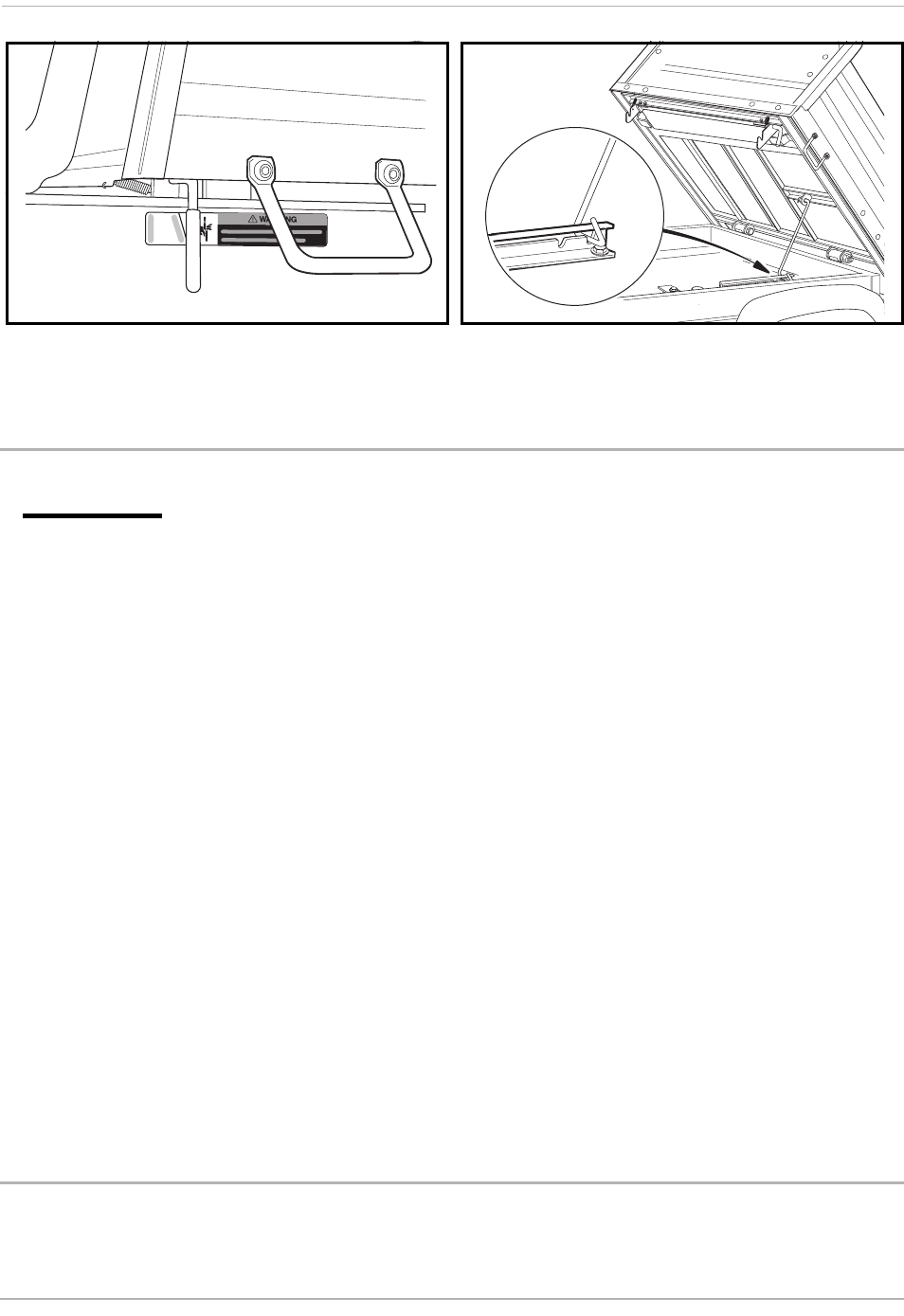
Loading and Unloading Cargo
2007 HUV 4421 Gasoline and Diesel Vehicle Owner’s Manual Page 23
LOADING AND UNLOADING CARGO
ý WARNING
• Firmly engage park brake before loading vehicle.
• Do not allow riders in the cargo bed.
• Reduce vehicle load and speed when driving up or down slopes or on uneven terrain.
• Do not exceed rated vehicle capacity. Rated capacity is for level surfaces only.
• Overloading can affect vehicle handling or cause component failure, resulting in loss of
control of vehicle and possible severe personal injury or death.
• Do not load tailgate. The tailgate should be in the upright position and latched securely while
the vehicle is in motion.
• To help avoid shifting vehicle load and possibly overturning the vehicle, avoid sudden starts,
sudden stops and abrupt turns. Make sure cargo is well secured.
• Avoid top-heavy loads. The center of gravity of load should never exceed 15 inches (38 cm)
above the bottom of the cargo bed.
• The cargo’s center of gravity may affect handling, steering, and braking of the vehicle. When
the vehicle is loaded, reduce speed and drive slowly in turns.
• Unload cargo bed before raising vehicle with a lift, hoist, or jack.
• Avoid stopping on a hill when loaded. If you must stop on a hill, avoid sudden starts, or rolling
backwards and stopping suddenly. Failure to heed this warning may cause vehicle to
overturn, possibly resulting in severe personal injury.
• Reduce speed and avoid sudden stops when backing up. Failure to do so may cause the
vehicle to overturn or flip over backwards.
• Maximum cargo load must be reduced by the weight of optional equipment.
Center and secure cargo as far forward as possible in the cargo bed. Do not overload the vehicle. See Vehi-
cle Load Capacities on page 24 for vehicle capacities.
VEHICLE LOAD CAPACITIES
Maximum Occupant Capacity
The maximum occupant capacity is the maximum allowable weight for occupants (operator and passenger) to
operate the vehicle safely.
Figure 9 Bed Latch Figure 10 Prop Rod
